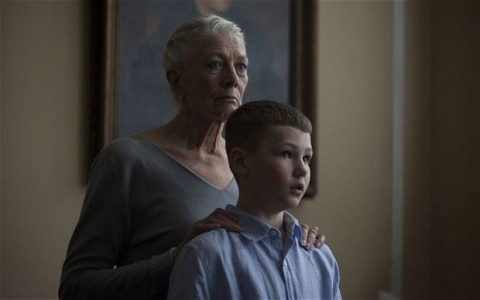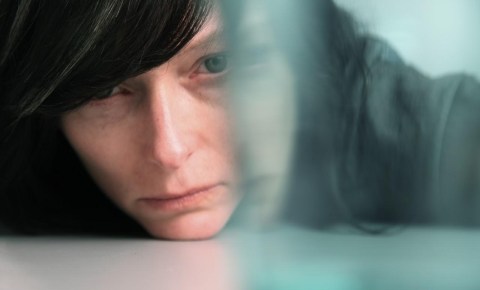…in which Feminéma rants about access
8 February 2012
Perhaps you’re thinking, “where the hell is Part II of the La Jefita awards? What kind of an anonymous blogger gets me all excited about seeing a list of top films by and about women, then doesn’t tell me which one wins for Most Feminist Film?” Well, you’re not the only one who wants to rant.
I wanted to consider several 2011 films for these awards, most notably Lynne Ramsay’s We Need to Talk About Kevin (Tilda Swinton, I love you) and Ralph Fiennes’ Coriolanus (so I can see Vanessa Redgrave kick the shit out of the mother stereotype), but the fact is, I can’t see them. I waited and waited, and checked showtimes everywhere within approximately 120 miles. Even if I drove all the way to Boston I couldn’t see them, because they’re not playing there, either. I don’t know what kind of moron is running those distribution companies, but if you can’t get your award-worthy film into a major American city like Boston by mid-February, you’re fucking useless.
Ahh, that feels better.
Now that I’ve ranted, and now that I’ve come to grips with the fact that I’ll have to put these films into my 2012 category (argh!), I’m prepared to re-jigger my finalists and finish this post — once I get the chance to see whether Gina Carano’s ass-kicking in Haywire is superior to The Girl With the Dragon Tattoo‘s or Hanna‘s. So, friends, you can be sure to catch this post by the weekend.
Here’s the thing about Best-of-the-Year lists: people like me haven’t seen half the motherfucken films because we live in Regular America, where they dribble great indie films out to us as if they’re rare commodities that only goddamn Newyoricans and Angelenos get to see.
This is too bad, because I’ve just invented the soon-to-be-coveted La Jefita statuette, to be awarded sparingly and only in person by me to artists of my choosing.
When I finally get a crack at these films of which I have heard so much good stuff, I have a big plan for categories of:
- Best Feminist Film (will it be Girl With the Dragon Tattoo??)
- Best Female-Directed Film (once I get the chance to see We Need to Talk About Kevin and Pariah, dammit)
- Best Female-Oriented Film (will it be Poetry?? or will Hanna or The Lady edge it out? is it even possible I could see Kenneth Lonergan’s Margaret??)
In my heart of hearts, I’d also like to add far more idiosyncratic categories like:
- Most Feminist Period Drama That Avoids Anachronism
- Sexiest Scene in Which a Woman Eats Food
- Best Fight Scene in Which A Woman Kicks a Man’s Ass
- Most Realistic Dialogue That Women Might Actually Say
- Best Role for a Veteran Actress Who Is Not Helen Mirren or Meryl Streep
Stay tuned on that one. I have to gird myself for controversy.
Only one award is ready to be given: BEST ACTRESS! Because no other performance by an actress can possibly beat out Joyce McKinney — as herself — in Errol Morris’s Tabloid.
She’s amazing! Is she BAT-SHIT CRAZY or BARKING MAD, the way one tabloid journalist portrays her? or a hopeless romantic, which is how she describes herself (and how she seems to have lived her life)? Does she really have a genius-level IQ? What really happened in that cottage in Devon in 1977? And who’s been threatening bloggers like me with lawsuits ever since the documentary was released?
Joyce McKinney is riveting, beautiful, clever, and unforgettable. I don’t care if it was a documentary: McKinney is playing the part of McKinney, and she’s doing it brilliantly.
Congratulations, Joyce — you are the first-ever winner of Feminéma’s marble La Jefita statuette!
“Hanna” (2011): a fairy tale
19 April 2011
We learn early on in Joe Wright’s Hanna that the girl’s father removed her at a young age to the remotest, winteryest part of Finland to have her grow up learning combat and survival techniques. One day as she’s walking through the woods, a low-flying plane crosses over her, and she raises her face to watch it. Then she shrieks — an otherworldly screech that’s so unexpected we’re not quite sure how to read it. Is it childish joy, fear, or some emotion unique to a fractured fairy-tale princess like Hanna?
 This is a great action movie. It’s jaw-dropping, funny and weird, and full of terrific characters — when I say that Cate Blanchett is the weakest link I mean no insult to her but high compliments to the entire cast. Best of all is Saoirse Ronan, who inhabits the part with such sureness and eerie emotional range that we never doubt for a moment that she is exactly what she’s supposed to be: a teenaged girl capable of taking out entire regiments of bad guys, yet possessed of an innocence entirely appropriate to a fairy-tale Cinderella. Ronan has the slightest build (is she 12? 16? 18? it could be any of those) yet when she drags a 200-lb reindeer through the snow or races across a Berlin landscape, you feel absolutely that she’s capable of anything. What makes this a great movie is the cross-pollination between action and fairy tale. Unobtrusively, the movie intersperses its action sequences with moments that evoke ancient tales — the girl who needs to return to her father, the evil stepmother (Blanchett, of course), the girl’s first date with a boy — only to blow up the outcomes into odd, spiraling new narratives.
This is a great action movie. It’s jaw-dropping, funny and weird, and full of terrific characters — when I say that Cate Blanchett is the weakest link I mean no insult to her but high compliments to the entire cast. Best of all is Saoirse Ronan, who inhabits the part with such sureness and eerie emotional range that we never doubt for a moment that she is exactly what she’s supposed to be: a teenaged girl capable of taking out entire regiments of bad guys, yet possessed of an innocence entirely appropriate to a fairy-tale Cinderella. Ronan has the slightest build (is she 12? 16? 18? it could be any of those) yet when she drags a 200-lb reindeer through the snow or races across a Berlin landscape, you feel absolutely that she’s capable of anything. What makes this a great movie is the cross-pollination between action and fairy tale. Unobtrusively, the movie intersperses its action sequences with moments that evoke ancient tales — the girl who needs to return to her father, the evil stepmother (Blanchett, of course), the girl’s first date with a boy — only to blow up the outcomes into odd, spiraling new narratives.
 Here’s the thing about fairy tales: in general, characters often seem driven by the internal logic of the tale to behave in ways that seem preordained. Stepmothers are wicked. Children are easy targets for bad guys, or they get themselves into binds due to their innocence. Heroines either succeed or they fail. Scorpions must sting — it’s their nature. But what if the heroine decides to take herself out of those equations? Like the Eldest Princess in A. S. Byatt’s terrific The Djinn in the Nightengale’s Eye, is it possible to change the story, or is she hopelessly caught in it?
Here’s the thing about fairy tales: in general, characters often seem driven by the internal logic of the tale to behave in ways that seem preordained. Stepmothers are wicked. Children are easy targets for bad guys, or they get themselves into binds due to their innocence. Heroines either succeed or they fail. Scorpions must sting — it’s their nature. But what if the heroine decides to take herself out of those equations? Like the Eldest Princess in A. S. Byatt’s terrific The Djinn in the Nightengale’s Eye, is it possible to change the story, or is she hopelessly caught in it?
Dropping someone like Hanna into the real world has unexpected twists and turns. First of all, most bad guys don’t look like Isaacs (Tom Hollander, above). When he’s recruited by Blanchett, he’s helping to run some kind of pervert’s wonderland of a nightclub; with his big eyes, unformed baby face, small stature, and penchant for track suits in Easter-egg colors, he seems infinitely more sinister than the white-power type henchmen he hires. Especially when he tries to hunt Hanna down while whistling a little tune: he’s terrifying.
Second, no fairy-tale princess ever had a friend like Sophie (Jessica Barden). Sophie is an English version of a Valley Girl — fast-talking, smart yet dingy, utterly consumed by pop culture. She can be disgusted by her hippie parents’ unconventionality, but not so much that she doesn’t join in when they all sing songs together as their camper motors down the highway. Barden steals nearly every scene she’s in and, as Hanna gazes at her with wonder, we follow her lead. The contrast of the two girls is such a simple and brilliant plot element that I can’t imagine why we don’t see this more often. (I could also mention the Chemical Brothers’ terrific soundtrack, which I want to hear again in its entirety.)
 So what does all of this amount to? I’m not going to make any claims about Hanna being something more than a great action movie with a terrific female lead, a movie made all the better for its twisted take on the fairy tale. By the time she gets to an abandoned amusement park outside Berlin and walks into a strange little house, the fairy tale seems to have barrelled toward an inevitable conflict (and what a strange little house it is: all the better to trap her). If the movie is grasping at a larger point — about parenthood, feminism, or corrupt governments, for example — I didn’t see it; in fact, it was somewhat refreshing to watch an action film that strives only to be a great action film. Watch it in that spirit.
So what does all of this amount to? I’m not going to make any claims about Hanna being something more than a great action movie with a terrific female lead, a movie made all the better for its twisted take on the fairy tale. By the time she gets to an abandoned amusement park outside Berlin and walks into a strange little house, the fairy tale seems to have barrelled toward an inevitable conflict (and what a strange little house it is: all the better to trap her). If the movie is grasping at a larger point — about parenthood, feminism, or corrupt governments, for example — I didn’t see it; in fact, it was somewhat refreshing to watch an action film that strives only to be a great action film. Watch it in that spirit.






















